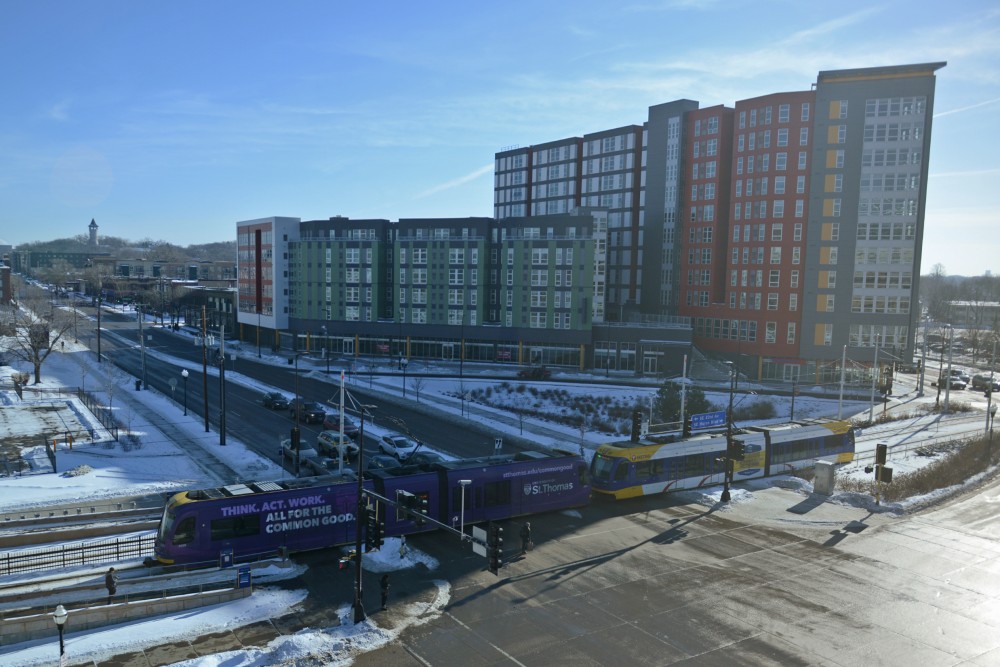A new City of Minneapolis policy aims to protect tenants living in naturally occurring affordable housing, including more than 1,000 units near campus.
The ordinance, passed by City Council earlier this month, requires landlords to notify tenants and the City 60 days before a building with more than five affordable naturally occurring affordable housing units is sold. The measure also requires landlords to help relocate tenants who are priced out of their apartments due to rent increases caused by changes in ownership.
More than 1,500 naturally occurring affordable housing units are located near the University of Minnesota. The Marcy-Holmes neighborhood includes 1,187 units priced at 40 to 60 percent of the area’s median income without government subsidy, the second-highest number of any neighborhood in the city. Prospect Park has 311 units, Cedar-Riverside has 107 and Como has 58, according to a 2018 report by the Minnesota Housing Partnership. The ordinance applies to housing units priced between 30 to 60 percent of the median income.
Other cities, including St. Louis Park and Richfield, passed similar measures earlier this year. However, Minneapolis is the first to require a 60-day notice, said Eric Hauge, executive director of HOME Line, a nonprofit tenant advocacy group.
“In all of those other cities, the ordinances that they’ve passed have only been about half of what Minneapolis passed,” he said.
Some landlords expressed concerns about the 60-day notice at a public hearing last month. The ordinance requires landlords to notify tenants of sale negotiation, not just sales, which landlords said could create a false sense of alarm.
Proponents of the ordinance say the 60-day notice will give tenants time to explore alternative housing options and will promote transparency.
“It may be something that raises alarm for tenants but … it’s better than having people be in the dark about the fact that their building might be getting sold,” Hauge said.
By notifying tenants and the City of sale negotiation, the ordinance also aims to bring in other potential buyers who could keep rent prices consistent.
“The notice period gives preservation-minded buyers the opportunity to compete in that market in a way that they don’t always have the opportunity to do now, because they might not even know that the building is for sale,” said Angie Skildum, residential finance manager in the City’s Housing Policy and Development division.
Under the policy, when a new owner purchases a complex, they must inform current residents of any rent increases. If affordable housing units are eliminated, the new owner must help relocate the tenants.
Ward 11 Council member Jeremy Schroeder co-authored the ordinance. He said the naturally occurring affordable housing is an important way to keep rent in Minneapolis affordable.
“We’re losing a lot of [naturally occurring affordable housing.] That’s what’s fueled the affordability crisis here in Minneapolis … [it] was a big deal to work on this,” Schroeder said.
Hauge said the ordinance is the first step to protecting renters in affordable housing. He said the council will continue efforts to protect tenants in the future, pointing to a renters’ bill of rights that the council will consider early next year.
“This is the beginning,” Schroeder said. “Notice is just the first part.”








